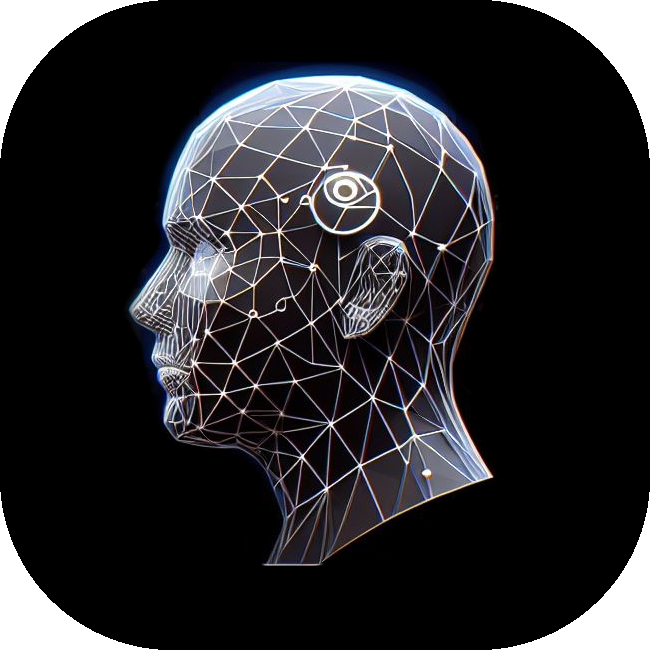Let’s be real here, folks—Watson isn’t just some random tech buzzword floating around in the digital ether. It’s a game-changer, a brainiac of the artificial intelligence world that’s been making waves since its inception. Imagine having a super-smart assistant that can out-think humans, sift through mountains of data in seconds, and even win a game of Jeopardy! Yeah, that’s Watson for ya. If you’re curious about how this AI titan is reshaping industries and solving real-world problems, you’ve come to the right place.
Now, before we dive headfirst into the nitty-gritty, let’s get one thing straight—Watson isn’t just about fancy algorithms and tech jargon. It’s about solving real problems, from healthcare to finance, and everything in between. Think of it as the ultimate problem-solving partner, one that’s not only smart but also adaptable to the ever-changing demands of modern life.
So, buckle up, buttercup, because we’re about to take a deep dive into the world of Watson. Whether you’re a tech enthusiast, a business owner, or just someone curious about how AI is changing the game, this article’s got something for everyone. Stick around, and let’s unravel the brilliance behind Watson together.
Read also:Indiana Pacers Defeat Dallas Mavericks In Close Game
What Exactly is Watson?
Alright, let’s break it down. Watson is more than just an AI system—it’s IBM’s flagship creation, designed to understand, reason, and learn like a human. But here’s the kicker—it does all that at lightning speed and with more precision than your average human brain can muster. Think of Watson as the ultimate geek, armed with a vast knowledge base and the ability to process natural language like a pro.
Here’s the lowdown on what makes Watson so special:
- It’s a cognitive computing system, meaning it doesn’t just crunch numbers—it thinks like a human.
- Watson can process and analyze vast amounts of unstructured data, like books, articles, and even social media posts.
- It’s not just about crunching data; Watson can also generate insights, predictions, and recommendations based on what it learns.
But don’t take my word for it. According to IBM, Watson has already been deployed in over 20 industries, helping businesses make smarter decisions and solve complex problems. That’s some serious AI muscle right there.
Watson's Journey: From Jeopardy! to World Domination
Let’s rewind the clock a bit. Watson first burst onto the scene in 2011 when it famously beat two Jeopardy! champions in a highly publicized competition. That moment wasn’t just a victory for IBM—it was a turning point for AI as a whole. People began to realize that machines could not only process information but also think critically and make decisions like humans.
Since then, Watson’s journey has been nothing short of epic. From healthcare to finance, retail to education, Watson has been deployed in countless industries, proving its versatility and adaptability. Here’s a quick snapshot of Watson’s evolution:
- 2011: Wins Jeopardy!, cementing its place in AI history.
- 2013: Expands into healthcare, helping doctors diagnose diseases and personalize treatment plans.
- 2015: Launches Watson Developer Cloud, making its AI capabilities accessible to developers worldwide.
- 2020: Plays a pivotal role in fighting the pandemic by analyzing medical data and identifying potential treatments.
Fast forward to today, and Watson is a household name in the tech world, trusted by businesses and organizations worldwide to tackle their toughest challenges.
Read also:Woman Strangled During Prison Visit The Shocking Truth Behind The Headlines
How Watson Works: The Magic Behind the Curtain
Alright, let’s get into the nitty-gritty of how Watson actually works. At its core, Watson is powered by a combination of machine learning, natural language processing, and cognitive computing. Here’s how it all comes together:
- Understanding: Watson can understand natural language, meaning it can process and interpret human speech and text like a pro.
- Reasoning: It uses advanced algorithms to analyze data and draw logical conclusions, much like a human would.
- Learning: Watson learns from every interaction, getting smarter and more accurate over time.
But here’s the real magic—Watson can process and analyze vast amounts of unstructured data, like books, articles, and even social media posts, in seconds. That’s a level of processing power that would take a team of humans years to achieve.
Breaking Down Watson's Core Technologies
Let’s zoom in on the key technologies that power Watson:
- Machine Learning: Enables Watson to learn from data and improve its performance over time.
- Natural Language Processing (NLP): Allows Watson to understand and interpret human language, making it easier for people to interact with the system.
- Cognitive Computing: Combines machine learning, NLP, and other advanced technologies to mimic human thought processes.
These technologies work together to create a system that’s not only smart but also adaptable, capable of tackling a wide range of problems across different industries.
Watson in Action: Real-World Applications
Alright, let’s talk about the real-world impact of Watson. This isn’t just some theoretical AI system—it’s actively solving problems and making a difference in people’s lives. Here are a few examples:
- Healthcare: Watson is helping doctors diagnose diseases, personalize treatment plans, and even predict patient outcomes.
- Finance: It’s being used to detect fraud, manage risk, and provide personalized financial advice.
- Retail: Watson powers chatbots and recommendation engines, enhancing the customer experience and driving sales.
- Education: It’s being used to personalize learning experiences, helping students achieve better outcomes.
But don’t just take my word for it. According to a report by McKinsey, companies using AI systems like Watson have seen significant improvements in efficiency, productivity, and customer satisfaction. That’s some serious ROI right there.
Case Study: Watson in Healthcare
Let’s zoom in on one of Watson’s most impactful applications—healthcare. Watson Health is revolutionizing the way doctors diagnose and treat diseases. By analyzing vast amounts of medical data, Watson can identify patterns and insights that might be missed by human doctors. It can also personalize treatment plans based on a patient’s unique medical history and genetic profile.
For example, Watson has been used to help doctors diagnose cancer more accurately and develop personalized treatment plans for patients. In one study, Watson’s recommendations were found to align with those of human doctors 99% of the time, but it also identified additional treatment options that doctors might have missed.
The Business Case for Watson
Now, let’s talk about the business case for Watson. Why should companies invest in this AI powerhouse? Here are a few compelling reasons:
- Increased Efficiency: Watson can automate repetitive tasks, freeing up employees to focus on more strategic activities.
- Improved Decision-Making: By analyzing vast amounts of data, Watson can provide insights and recommendations that lead to better decision-making.
- Enhanced Customer Experience: Watson-powered chatbots and recommendation engines can improve the customer experience, driving loyalty and sales.
According to a report by Gartner, companies that invest in AI technologies like Watson are seeing significant improvements in efficiency, productivity, and customer satisfaction. That’s a pretty compelling ROI if you ask me.
Cost-Benefit Analysis of Watson
Let’s break it down in dollars and cents. While implementing Watson can be a significant upfront investment, the long-term benefits far outweigh the costs. Here’s a quick snapshot:
- Costs: Licensing fees, implementation costs, and ongoing maintenance.
- Benefits: Increased efficiency, improved decision-making, enhanced customer experience, and competitive advantage.
For many companies, the ROI on Watson is clear—investing in this AI powerhouse is a smart move that can pay dividends for years to come.
Watson's Future: What's Next for AI?
Alright, let’s talk about the future of Watson. Where is this AI powerhouse headed, and what can we expect in the years to come? Here are a few trends to watch:
- Increased Personalization: Watson will become even more personalized, tailoring its insights and recommendations to individual users.
- Greater Integration: Expect to see Watson integrated into more systems and platforms, making it easier for businesses to leverage its capabilities.
- Enhanced Learning Capabilities: As Watson continues to learn and evolve, it will become even smarter and more accurate over time.
But here’s the real kicker—Watson’s future isn’t just about technology. It’s about people. As more businesses and organizations adopt AI systems like Watson, we’ll see a shift in how work is done, how decisions are made, and how problems are solved. The possibilities are endless.
Challenges and Limitations of Watson
Of course, no technology is perfect, and Watson is no exception. Here are a few challenges and limitations to keep in mind:
- Data Privacy: As Watson processes vast amounts of data, ensuring privacy and security is a top priority.
- Integration Challenges: Implementing Watson into existing systems can be complex and time-consuming.
- Cost: While the ROI on Watson can be significant, the upfront investment can be a barrier for some companies.
That said, IBM is actively working to address these challenges, making Watson more accessible, secure, and user-friendly than ever before.
Addressing Data Privacy Concerns
Let’s zoom in on one of the biggest challenges facing Watson—data privacy. As Watson processes vast amounts of sensitive data, ensuring privacy and security is a top priority. Here’s how IBM is addressing this issue:
- Encryption: All data processed by Watson is encrypted, ensuring it’s secure from end to end.
- Compliance: Watson complies with global data privacy regulations, including GDPR and HIPAA.
- Transparency: IBM is committed to transparency, providing clear guidelines on how data is collected, processed, and stored.
While data privacy remains a challenge, IBM’s commitment to security and transparency is helping to build trust and confidence in Watson’s capabilities.
Conclusion: Why Watson Matters
Alright, let’s wrap this up. Watson isn’t just another AI system—it’s a game-changer that’s reshaping industries and solving real-world problems. From healthcare to finance, retail to education, Watson is making a difference in people’s lives and businesses worldwide.
But here’s the real takeaway—Watson isn’t just about technology. It’s about people. It’s about empowering businesses and organizations to make smarter decisions, solve complex problems, and create a better future for all of us.
So, what’s next? If you’re interested in learning more about Watson, I’d encourage you to check out IBM’s website or reach out to a Watson expert for more information. And if you’ve got any questions or comments, feel free to drop them below. Let’s keep the conversation going!
Table of Contents


